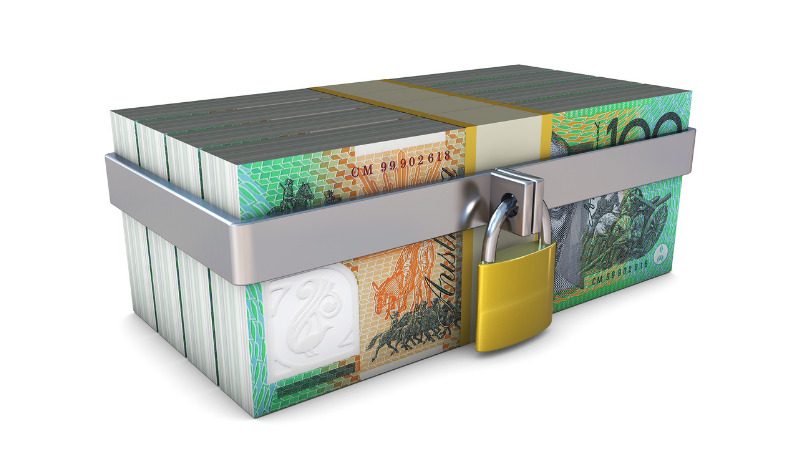What is a personal loan?
A personal loan is a monetary loan you can get from a credit provider such as a bank, credit union or online lender – usually for a specific life purpose like renovating your home, paying for a holiday or consolidating several smaller loans. Lenders approve personal loans by evaluating your creditworthiness.
When you enter into a contract for a personal loan, you typically receive money in a lump sum and agree to repay the lender back the money in regular instalments over a specific length of time.
You also pay interest on the amount you borrow, and in some cases, fees and other charges. These interest rates, fees and charges can vary from lender to lender, loan to loan and borrower to borrower.
How do personal loans work?
If you’re considering a personal loan, you should become familiar with some of the details, including how much you can borrow, how to apply and how much they cost. Here are some of the main concepts to remember:
- The amount you can borrow. Personal loan amounts can be very small or very large. We’ve seen lenders offer loans as little as $500 and as large as $70,000.
- The application and approval process. You can apply for some personal loans online in a matter of minutes and be approved (or denied) just as quickly. With others, you may have to visit a branch and it may take days for the approval process to complete.
- The cost. On top of requiring you to repay the loan amount, lenders make their money by charging you in a number of ways. These may include interest on the loan, as well as fees like an establishment fee, monthly fees, late payment fees and early discharge fees. Your specific combination of charges will be described in your contract.
- The loan term. This is how long you’ll be paying off the loan. We’ve seen loan terms as short as 3 months or as long as 7 years.
- The amount of repayments and when they are due. Your loan amount, interest rate and loan term will be set in advance, so it’s easy for the bank to calculate exactly what your regular payments will be and when they are due.
Types of personal loans
Here are the main types of personal loans you may encounter:
- Unsecured personal loans. Your standard personal loan you can use toward various life projects like a holiday, home renovation or medical bill.
- Car loans and other secured loans. A personal loan where you offer up an asset as collateral in case you can’t make your payments. This collateral is officially known as the security. Take for example a car loan, where the purchased car serves as security that the bank can repossess if you can’t make your payments
- Debt consolidation loan. A special type of personal loan you would use to pay off several smaller loans.
- Line of credit. A personal loan where a specific amount is available for you to borrow, but you don’t have to borrow it all. You only pay interest on the amount borrowed.
- Quick cash loan. A personal loan that doesn’t have a strict acceptance criteria so that people with lower credit scores can get the loans they need. These often come with higher interest rates and fees.
How much do personal loans cost?
The cost of personal loans will differ from person to person and loan to loan. A large part of this comes down to your creditworthiness. For example, someone with a higher credit score and a more positive borrowing history will often pay less for the same loan than someone with lower marks.
Here are some factors that will determine how much you’ll pay:
- Interest rate. This the percentage your debt will increase every year. Most personal loans will charge an interest rate. The Australian Securities & Investments Commission has capped interest rates at 48% but we’ve seen rates as low as 5.75%.
- Fees. Many loans will also charge fees on top of the interest, such as a one-off establishment fee to set up the loan or even monthly fees. Some very small loans might do away with an interest rate altogether in favour of one set loan fee.
- Comparison rate. This is simply a loan’s interest rate when fees are factored into it. Since not all loans charge the same fees, this comparison rate makes it easy for you to compare the loan cost of several loans side-by-side.
- Length of loan. Since your interest rate adds to your balance each year, the longer you have your loan, the more you’ll end up paying in the long run (all else being equal).
- Amount borrowed. Generally speaking, the more you borrow, the more you’ll end up paying for the loan.
How do you apply for a personal loan?
- Decide how much you want to borrow. Work out how much money you need for your holiday, home renovations, debt consolidation or whatever personal project you need the funds for.
- Work out how much you can afford for payments. Use a loan calculator to work out how long you’ll need to pay back the loan, based on how much you can afford to pay back per month.
- Compare personal loan options. Identify a few lenders with loans that meet your criteria from the first two steps.
- Gather your paperwork. Gather together any paperwork the lender asks for. This may include ID, bank statements and proof of address.
- Apply. You can apply for most personal loans conveniently online.
Does applying for a personal loan affect your credit score?
When you apply for any loan, your credit score can dip slightly. However, with New Zealand’s Comprehensive Credit Reporting system, regular on-time payments can help your score go right back up.
Some lenders will advertise something along the lines of “free rate quote that won’t affect your credit score.” This means they will quote you a rate based off of basic info like your income and the amount you want to borrow – without doing a credit check.
But this is not the same as applying for the loan. If you want to apply for the loan based on the rate quoted to you, you will usually have to go through a credit check and your score may dip as a result.
Who should get a personal loan?
You should only get a personal loan if you have a specific purpose in mind for the money: to help pay for a special project, purchase or life event, or to help out in a time of emergency.
Taking out a lump sum without any real purpose for it could lead you to squander it and end up with a large debt with not much to show for it. For regular ongoing purchases you plan to pay off regularly, you could consider a credit card instead.
The information in this blog post is general in nature and does not constitute personal financial or professional advice. It is not intended to address the circumstances of any particular individual or business. We do not guarantee the accuracy and completeness of the information and you should not rely on it. Before making any decisions, it is important for you to consider your personal situation, make independent enquiries and seek appropriate tax, legal and other professional advice.
Credit Simple
Credit Simple gives all Kiwis free access to their credit score, as well as their detailed credit report. See how your credit score compares by age, gender and community and gain valuable insights into what it all means.
All stories by: Credit Simple


